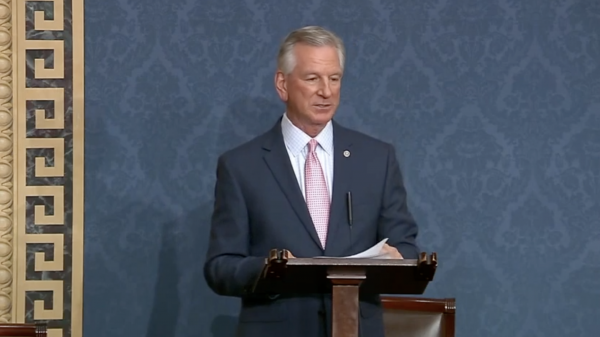Republican candidate Caroleene Dobson is running to be the U.S. Representative for Alabama’s 2nd Congressional District. Dobson has made strong public comments on education, comments which may prove concerning in light of her own educational history.
Dobson herself graduated from Monroe Academy in 2005, a private school in Monroeville that has been referred to as a “segregation academy” – a private school founded for the purpose of side-stepping the historic Brown v. Board of Education Supreme Court decision that ruled public school segregation unconstitutional.
In comparison to Monroeville’s predominantly Black local public schools, Monroe Academy has allegedly never admitted any Black students despite its website’s stated non-discrimination policy.
ProPublica has identified around 300 “segregation academies” in Alabama’s Black Belt region. Although quite a few of these schools have begun to develop student bodies that are more representative of their region’s demographic makeup, many remain white-dominated spaces within largely Black communities.
These private schools not only enable and perpetuate racial segregation, they also harm communities by doubling overhead costs and halving the program resources that would be available to students were these academies to merge with their public school counterparts. In smaller, rural localities, expenses add up and students go underserved.
Despite this, Republicans like Dobson continue to advocate for the allocation of more taxpayer money to private schools. Dobson has publicly supported the CHOOSE Act, a bill signed into law by Gov. Kay Ivey, which – starting in 2026 – will provide for a minimum of $100 million in education “vouchers” that will go towards covering private school students’ tuitions among other costs.
This means that Alabamians will be forced to pay into a program that will deplete the resources of their local public schools while simultaneously funding private institutions, like Monroe Academy, that too often perpetuate racial divisions and disparities in their own communities.
Dobson’s campaign claims that “school choice allows all children regardless of race, income level, or zip code the opportunity to receive a quality education that prepares them for high-paying, 21st century jobs” but demographic data shows otherwise.
Black students in Alabama are far more likely to attend impoverished public schools than their white counterparts. 6 in 10 students enrolled in “high poverty” schools in Alabama are Black while only 2 in 10 are white.
According to Erica Frankenberg, a Pennsylvania State University professor, originally from Alabama, who studies the impact of racial and socioeconomic diversity on students, “attending high-poverty schools can limit students’ access to high-quality educational resources. It can be hard to attract and retain high-quality, certified, experienced teachers in these schools, offer the same array of curricular and extracurricular options, have facilities that are welcoming, etc.”
When these realities are taken into consideration, it becomes apparent that the CHOOSE Act may very well disproportionately harm Black students who are already receiving less educational resources on-average than their white peers.
Interestingly, Dobson is an outspoken opponent of critical race theory — an educational approach meant to highlight these very same historical disparities between people of color and their white contemporaries. Critical race theorists would likely argue that the CHOOSE Act will exacerbate inequitable access to education for Alabamians of color, but Dobson wants to silence such voices.
Dobson also supports defunding the Department of Education — a policy straight out of the Project 2025 playbook that explicitly seeks to privatize education in hopes of eliminating programs related to LGBTQ+ populations and diversity writ large. Project 2025 also proposes the elimination of Title I, an $18 billion program designed to support low-income students.
Dobson’s policy positions place her in stark opposition to the progress that has been made towards racial integration, diversification, and increased accesibility to Alabama’s public schools in the wake of the Civil Rights Movement. Dobson appears intent on maintaining the legacy of segregation academies like her alma mater and on limiting access to quality education to predominantly wealthy, predominantly white, Alabamians.
Dobson’s opponent in November will be Shomari Figures, a Black Democrat who himself attended a public high school in Alabama before going on to graduate with a law degree from the University of Alabama. Figures is now running for the same 2nd District seat as Dobson after working in the Department of Justice and across the federal government in a number of advisory roles. Figures’ father also fought to expand civil rights in Alabama’s Black Belt as a state senator and lawyer.





















































